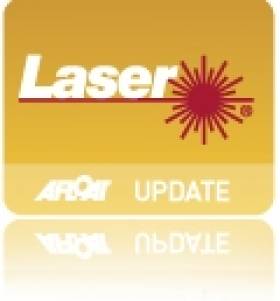Displaying items by tag: SailLaser
Do Some Funny Sailing for Comic Relief
In Weymouth, SailLaser's RYA Onboard Club are invited to teach a friend to sail in a Laser Pico before heading off to the race course in pairs. The race around a short course will have the added challenge of collecting as many letters from each turning mark as possible. The winners will be those who can spell the longest word from the letters they collect at the end of the race!
SailLaser's "Race Club" members will also be able to introduce a friend to sailing and after a short introduction they will battle it out on the race course in the fleet of Laser Bahias.
In Scotland, RYA OnBoard Club fund raisers will take part in a multi-disciplined "Tri-Mile" event. The Tri-Mile will include a run, pedal and sail; running from the start line to a pedalo on the shore, pedalling to a Pico moored in the middle of Strathclyde Loch and racing the Pico around a course before arriving back at the shore and running to the finish line!
To add to the fun, competitors, organizers and helpers are encouraged to wear fancy dress. The theme is RED!
"This is a great opportunity for all of our regular sailors to get on the water with a friend as well as raising money for Comic Relief" explains Hannah Burywood, event organiser at SailLaser Weymouth.
The charity Comic Relief was launched on Christmas Day in 1985 from a refugee camp in Sudan. The highlight of Comic Relief's appeal is the bi-annual Red Nose Day. The first Red Nose Day was held in 1988 and £15 million was raised. In 2009, over 5 times that amount was raised to support projects in 25 African countries and the UK. SailLaser is proud to do their bit to support Comic Relief in 2011.
























































